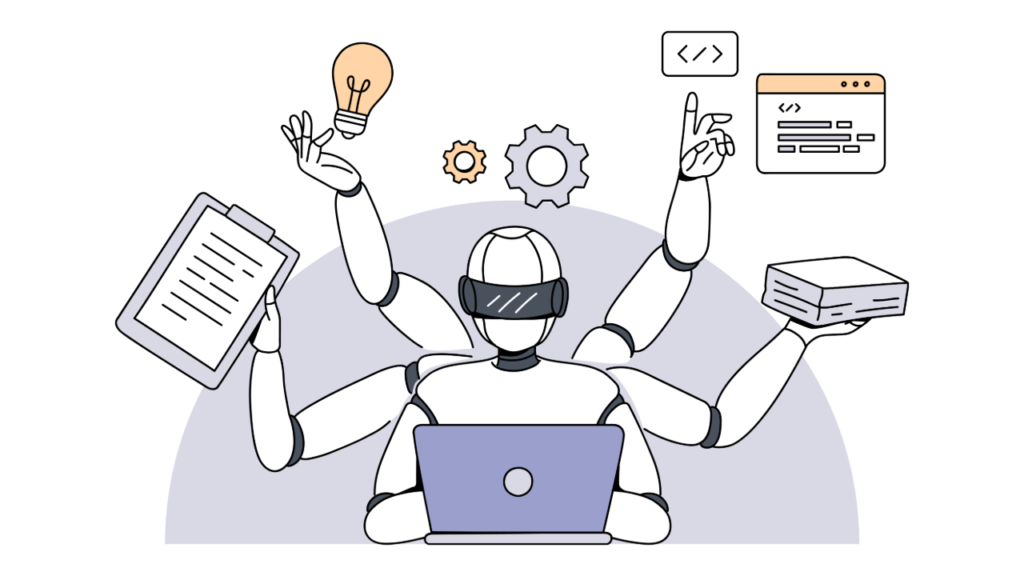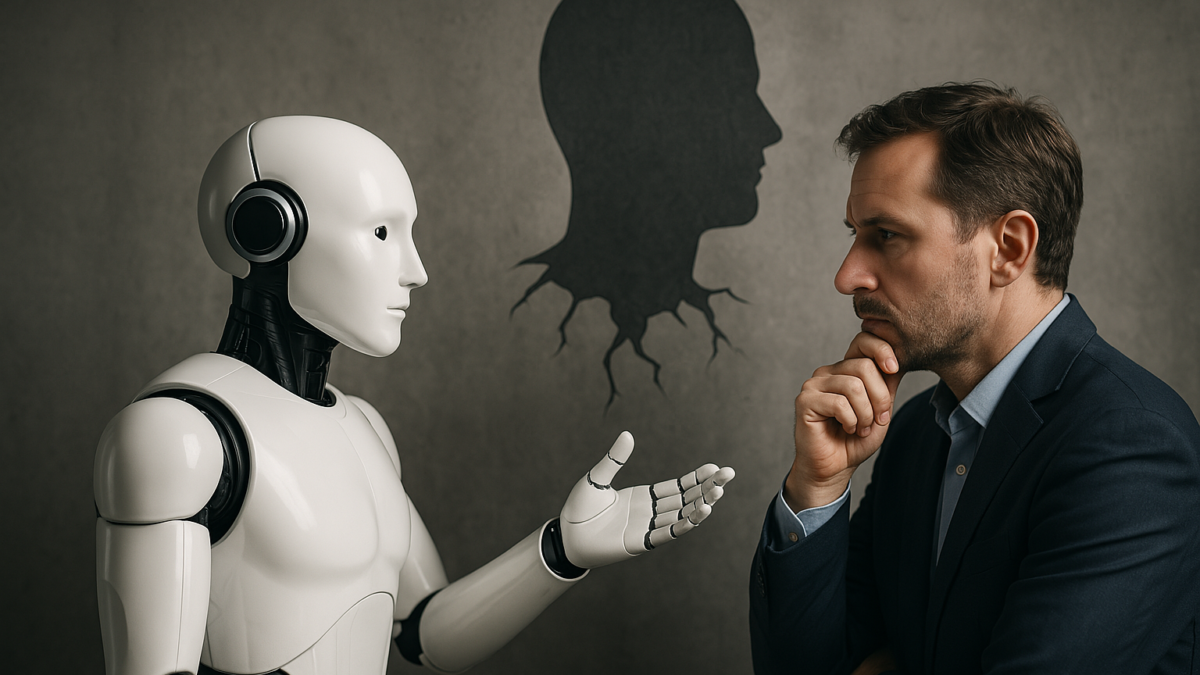Table of Contents
Artificial Intelligence (AI) is no longer just a buzzword—it’s rapidly becoming the driving force behind the modern workforce. From customer service chatbots and AI-generated content to robotic process automation in finance and logistics, machines are taking over tasks once reserved solely for humans.
This raises a crucial question: Are we witnessing the extinction of human-driven employees? Or is this the beginning of a powerful human-AI collaboration?
Let’s dive deep into the evolution, implications, and future of AI in the workplace.
🤖 What Are AI Employees?
AI employees are not just robots walking around the office. They can be:
- Chatbots handling customer queries
- AI writers producing emails, blogs, or ad copy
- Automation tools managing repetitive data-entry tasks
- AI-based recruiters filtering job applications
- Virtual assistants like ChatGPT helping teams brainstorm and draft documents
Unlike traditional employees, AI systems work 24/7, don’t require breaks, and improve with data over time. Their efficiency is undeniable—but so is their disruption potential.
News: Microsoft introduces AI employees that can handle client queries
🧠 The Rise of AI Employees in the Workplace

AI has already infiltrated almost every sector(AI Employees) :
🔹 Marketing
AI tools like Jasper and ChatGPT are crafting ad copy, blog posts, email campaigns, and even social media captions. They’re also analyzing customer behavior to personalize marketing at scale.
🔹 Customer Support
Chatbots and virtual agents now handle over 80% of Tier 1 support tickets across industries. They can answer FAQs, process returns, and troubleshoot—all without human help.
🔹 HR and Recruitment
AI tools scan resumes, assess candidate fit, and even conduct initial interviews via voice or chat interfaces. This saves companies time and narrows down the best candidates faster.
🔹 Finance and Legal
AI is used to detect fraud, predict stock performance, automate invoicing, and even review legal contracts for compliance.
🧩 Will Human Employees Become Extinct?\
The fear is understandable: if AI can do it faster and cheaper, why keep humans around?
But here’s the reality: while AI is replacing tasks, it’s not fully replacing people—at least not yet.
🔸 Jobs Lost vs. Jobs Transformed
- Repetitive tasks like data entry, scheduling, and sorting are being automated.
- But creative, emotional, and strategic roles are still very much human-led.
- Roles like content strategists, AI trainers, prompt engineers, and ethical AI auditors are on the rise.
According to the World Economic Forum, AI is expected to displace 85 million jobs by 2025—but also create 97 million new ones. It’s not extinction; it’s evolution.
🧬 Human Skills AI Can’t Replicate (Yet)
Despite the hype, AI still lacks several key attributes:
- Emotional Intelligence
Understanding emotions, managing team dynamics, and building client relationships are still best handled by people. - Creativity & Intuition
AI can generate ideas, but it can’t intuitively “feel” cultural moments or develop truly unique, human-centered ideas. - Ethics & Morality
Machines follow code. Humans make complex, value-driven decisions based on morality, not just logic. - Adaptability
In volatile or unfamiliar situations, human decision-making is still superior.
So, while AI can support and scale, it cannot fully replace the depth of the human experience—at least not yet.
🌐 Human-AI Collaboration: The Ideal Future?
Rather than viewing AI as a threat, companies and professionals should see it as a partner. When humans and AI work together, magic happens:
- AI automates the boring stuff → humans focus on strategy
- AI analyzes massive data → humans interpret and act on it
- AI speeds up processes → humans add creativity and empathy
In this model, humans act as “AI supervisors” or “orchestrators”, using tools to boost productivity without losing the human touch.
⚠️ Ethical & Economic Concerns
Of course, not everything is sunshine and automation.
- Job Displacement: Low-skilled workers may be disproportionately affected.
- Bias in Algorithms: AI can inherit and amplify human biases.
- Data Privacy: Sensitive information processed by AI raises security concerns.
Governments and corporations must create AI governance frameworks, upskill their workforce, and ensure responsible AI deployment.
🚀 How You Can Prepare for the AI-Powered Future
- Learn AI tools relevant to your industry (e.g., ChatGPT, Midjourney, Zapier).
- Focus on human-centric skills like empathy, leadership, storytelling, and negotiation.
- Stay updated with emerging AI trends, ethics, and laws.
- Think like an AI collaborator, not a competitor.
🧠 Final Thoughts
We’re not witnessing the extinction of human employees—but rather a major transformation. As AI takes over mundane, repetitive tasks, humans are being liberated to do more impactful, creative, and meaningful work.
The future belongs not to AI alone, but to humans who know how to use AI effectively.
You May Also Like: The Future of Pre-Employment Background Verification in the AI Era
AI in HR: Position Your Organization for Success
What are AI Employees?
AI employees, also referred to as AI coworkers, AI agents, digital workers, or virtual assistants, are sophisticated software systems infused with artificial intelligence. They utilize technologies like machine learning (ML) and natural language processing (NLP) to perform tasks, analyze data, make decisions based on inputs, communicate effectively, adapt to changes, and react according to predefined objectives.





